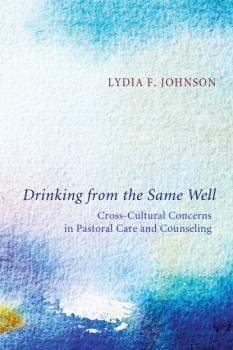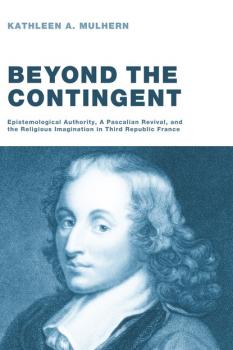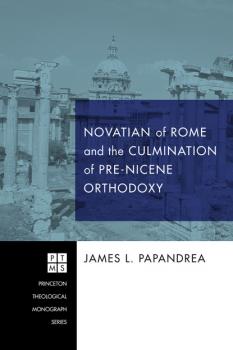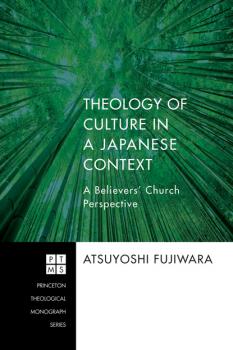MREADZ.COM - много разных книг на любой вкус
Скачивание или чтение онлайн электронных книг.Drinking from the Same Well
Drinking from the Same Well is designed for those who seek a praxis-oriented theological grounding in the exploration of cross-cultural perspectives in the field of pastoral care and counseling. It traverses the broad terrain of cultural analysis and also explores in depth a number of discrete cross-cultural issues in pastoral counseling, related to communication, conflict, empathy, family dynamics, suffering, and healing. Cultural analysis and theological reflection are situated alongside numerous case studies of persons and situations that enflesh the concepts being discussed, and readers are invited to engage personally with the material through a variety of focus questions and reflective exercises. This book can serve as a helpful textbook for seminarians and a useful guide for pastors and priests, church study groups, multicultural parishes, and anyone engaged in helping ministries with persons from other cultures. The goal is to develop culturally competent pastoral caregivers by providing a comprehensive and practical overview of the generative themes and challenges in cross-cultural pastoral care.
Reconciling Violence and Kingship
The Hebrew Bible preeminently hails King David in narratives of kingship. Israel's first king, Saul, is interpreted as a weak king whose failings contrast with David's success. Reading the stories at the end of Judges and early in 1 Samuel, Reconciling Violence and Kingship demonstrates the significance of Saul and the inauguration of monarchy independent of and preceding David's kingship. Attuned to issues of mimetic rivalry and sacrifice extending from Abimelech in Judges, Michelson argues that Saul's kingship is uniquely important in establishing the person of the king, inaugurated in order to minimize violence through sacrifice. Read in this way, Saul is not a failed king, but is truly Israel's predominant king. Israelite monarchy emerges with Saul alongside emerging practices of the sacrificial cult.
Beyond the Contingent
In light of the contemporary struggle between science and faith, Kathleen Mulhern's timely exploration of late nineteenth-century neo-Pascalian thought both recovers a lost perspective on the «war between science and religion» and offers a fruitful angle of study for twenty-first-century reflection. As the science vs. religion rancor reached its early fury at the turn of the century, many devout French Catholic intellectuals struggled with the increasingly dogmatic spirit in both the Roman Catholic Church and the scientific community. The dominant ideology of scientism within the intellectual establishment of the Third Republic (1870-1940) collided with a growing authoritarianism within the Church, expressed in the 1893 papal encyclical, Providentissimus. Physicist Pierre Duhem, philosopher Maurice Blondel, and priest Lucien Laberthonniere rejected the Roman Catholic Church's Thomistic methodology and sought intellectual inspiration instead in the philosophy of seventeenth-century scientist, mathematician, philosopher, and Christian apologist Blaise Pascal. These neo-Pascalians offered an alternative to the adversarial relationship between modern culture and orthodox Catholic faith, but their ideas came to an abrupt and bitter conclusion when they ran afoul of Church authority. The narrative and contribution of the neo-Pascalians offers many insights and lessons that could helpfully inform the contemporary debates surrounding the dialogue between science and religion.
Worldview as Worship
The goal of many evangelical educators is to facilitate biblical thinking and the worldview transformation of their students. Yet, aside from upholding a set of moral behaviors or maintaining positions on issues perceived to be «Christian,» the goals and aspirations of most evangelical young people differ little from their unbelieving peers. As George Barna has noted, «We have a generation coming up that . . . isn't looking at Christianity to answer spiritual concerns . . . We either change or we lose them.»
Worldview as Worship contends that the approach taken by most evangelical educators to the issue of worldview transformation has neglected to address two fundamental components of worldviews. First, that our initial worldviews are not philosophical systems but rather faith dispositions and that worldview transformation cannot simply present the biblical worldview as a more rational or logical system, but must address issues of the heart as well as the mind. Second, unlike philosophies that are individual, worldviews are communal and are learned and transformed within the context of community practice.
Appealing to Paul's teaching in Romans 12:1-2, Worldview as Worship approaches the «renewing of your mind» as the result of the believer's presentation of themselves as a «holy sacrifice . . . which is your spiritual service of worship.» The book advocates an approach to worldview transformation that focuses on believers as apprentices rather than simply as students–an approach that holds true to the biblical model of discipleship. As a result, worldview transformation works best when the application of faith to the issues of learning and life are modeled by the faith community and where students are given the opportunity to put faith into practice.
The Long Shadow of Emile Cailliet
This book aims to examine the importance of Christian philosophy in theological education through the prism of the life and teachings of Emile Cailliet. The book's primary focus is on his years of teaching at Princeton Theological Seminary, to which all the authors are connected. This work examines Cailliet as a believer, teacher, scholar, and philosopher. Although Cailliet wrote over twenty books, none of them articulated his formal position on the nature of theological education. However, it is clear from his teaching at seminary and his writings on philosophy, especially Pascal, that he saw philosophy as an integral part of seminary training. We want to preserve his work because he was a seminal but neglected thinker whose influence extends from science to literature and from philosophy to spirituality and theology. We believe that Emile Cailliet was one of the most influential Christians of the twentieth century. We invite the reader to stand in the long shadow of Cailliet and consider how his life and thought can help us tackle some of the knotty questions that face us today.
Novatian of Rome and the Culmination of Pre-Nicene Orthodoxy
Novatian of Rome and the Culmination of Pre-Nicene Orthodoxy is an overview of the development of Christology and Trinitarian doctrine, which reached a plateau with Novatian, the third-century priest of Rome. Here James Papandrea offers an enlightening and thorough treatment of the thought, historical context, and theological influences of Novatian. Included are an assessment of the alternative Christologies of the pre-Nicene period, a survey of Novatian's legacy, and concluding comments on the relevance of his theology and ecclesiology for the contemporary church.
Theology of Culture in a Japanese Context
The Christian faith has always stood in a place of tension between its transcendent nature and the surrounding culture. On the one hand, Christian faith claims to originate in the revelation of God, which transforms culture itself. On the other hand, all such revelation is inevitably received and interpreted by humans in concrete situations. It is no exaggeration to say that two millennia of church history have continually demonstrated the struggle between Christian faith and culture. In an effort to address this struggle, this book explores relevant issues pertinent to the relationship between faith and culture in the particular context of Japan. In this unique work, the context of Japan, well known as a desolate swamp for Christian missions, provides the setting for a re-exploration of issues pertaining to theology of culture. As such, Japan provides both a concrete and challenging context to work out a theology of culture. This book also helpfully illuminates for Western readers some key problems that may not have appeared fully in their contexts yet but will do so as the post-Christendom era continues.
The Joyful Feast
Liturgical Elements for Reformed Worship is a series of four liturgical resources: three consisting of liturgical elements for Years A, B, and C, and a fourth, the first such resource to support the implementation of Year D: A Quadrennial Supplement to the Revised Common Lectionary (Cascade, 2012). Each volume consists of a Call to Worship, Opening Prayer, Call to Confession, Prayer of Confession, and Words of Assurance, with Years A-C including additional elements (A Prayer in Preparation for Worship, The Offering, Prayer of Dedication, and a Blessing) suitable for Presbyterian, Reformed, and other Protestant worship. Each of these practical volumes is intended for use by pastors, liturgists, and other planners and leaders of worship.
The Wisdom of Jesus
How would the image of Jesus appear if it were based only on sayings that scholars generally agreed originated with Jesus? And how would the wisdom of Jesus reflected in those few sayings compare to the wisdom of the sages of ancient Israel and the apostles of the early first-century church? To answer such questions historians face serious difficulties. Everything we know about Jesus comes from what later writers thought about him; none of the things they claimed he said came directly from him. «Everything in the early Christian gospels is either derived from historical memory, or is borrowed, or invented,» Hedrick claims. Even those few sayings receiving near-universal agreement from historians as sayings of Jesus can only be affirmed as probable rather than certain. The aim of this study is to allow Jesus to speak for himself directly to readers, as nearly as possible in his own words without the theological explanations of his interpreters. The resulting image of Jesus that emerges is a complex picture of a first-century lower-class man who was not religious in a traditional sense. His discourse was the language of the secular world and addressed issues of common life.
John Howard Yoder
This book argues that for John Howard Yoder both theology (in particular Christology) and ethics are expressions of the meaning of the narrative of Jesus. All such statements are relative to a particular context, which means that theology and ethics are always subject to reaching back to the narrative in order to restate the meaning in new and ever-changing contexts. This methodology is visible in Yoder's Preface to Theology, which has been little used in most treatments of Yoder's thought. Yoder has been characterized as standing on Nicene orthodoxy, criticized for rejecting Nicene orthodoxy, called heterodox, and designated a postmodern thinker to be interpreted in terms of other such thinkers. None of these characterizations adequately locates the basis of his methodology in the narrative of Jesus. Thus John Howard Yoder: Radical Theologian aims to go beyond or to supersede existing treatments with its demonstration that Yoder is a radical theologian in the historical meaning of radical–that is, as one who returns to the root. For Christian faith, this root is Jesus Christ. Parts II and III of the book explore the sources of Yoder's approach, and its application in several contemporary contexts.









